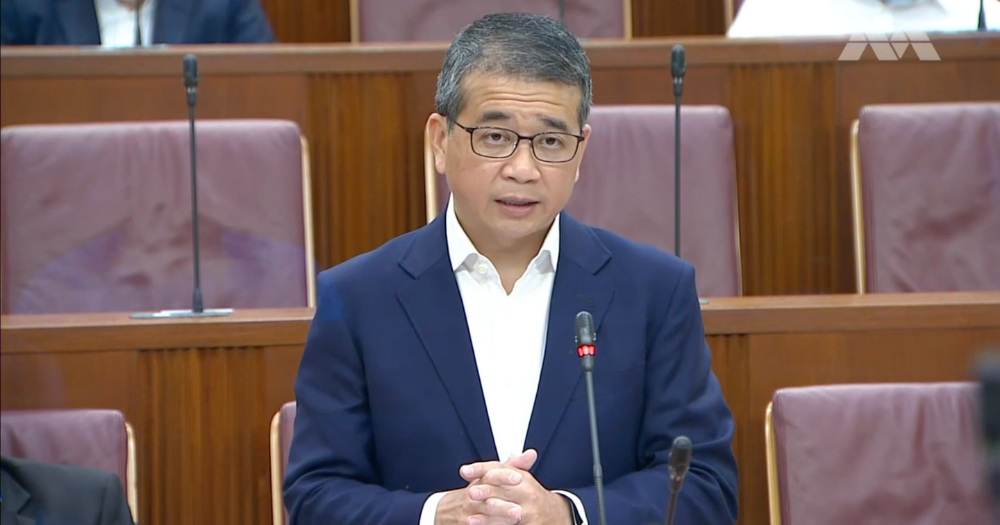Minister for Culture, Community and Youth Edwin Tong said the government has a multi-pronged approach to tackle racism in society, including several initiatives and measures, after a recent spate of racist attacks and incidents.
Tong was responding in Parliament to questions from Members of Parliament (MPs) Cheng Li Hui and Carrie Tan.
Both asked how the government is addressing tensions on racial discrimination, as well as what the government is doing to lead conversations on race and religion.
Tong echoed Minister for Finance Lawrence Wong's views during an Institute of Policy Studies (IPS) and S. Rajaratnam School of International Studies (RSIS) forum that multiracialism in Singapore is not perfect at the moment.
Instead, it is a constant work in progress, and everyone has a part to play "in building a nation", Tong said.
Enforcement and legal framework
To safeguard racial harmony, there are laws in place such as the Maintenance of Religious Harmony Act (MRHA), amended in 2019, and the Penal Code, where it is an offence to commit acts that deliberately wound the racial and religious feelings of any person, or promote enmity between different racial and religious groups.
Anyone who spreads hate speech or attempts to sow enmity between races will be investigated, Tong said.
Tong brought up the example of a Twitter user, presumably the one going by the moniker of @SharonLiew86, who had posted numerous racially offensive tweets, and was jailed for three weeks in June.
Under the Broadcasting Act, IMDA can also direct Internet Content Providers to take down broadcasting material that glorifies, incites or endorses ethnic, racial or religious hatred, strife or intolerance.
Encouraging respectful online behaviour
To encourage respectful online behaviour and social discourse also takes a whole-of-society partnership, including the government, industries and the community, Tong said.
The Media Literacy Council and MCCY organises and encourages, respectively, projects that promote civic-mindedness and racial harmony.
He added that social media companies also play a part by improving and enforcing their policies to remove content on their platforms that promotes violence against people based on their race or ethnicity.
Having conversations on race and religion
Tong highlighted that having open, meaningful and responsible conversations about difficult topics like race and religion is also key.
Such conversations — held in collaboration with stakeholders in the public, private and people sectors — help unite Singaporeans, allow them to find common ground, and build trust and respect.
To do this, the government has trained and developed a pool of facilitators in the public service to design and lead such engagements, one example of which is the Emerging Stronger Conversations, an initiative where Singaporeans can discuss tough topics.
Additionally, community and religious groups play a key role in encouraging constructive discussions, as well as helping to clarifying doubts and misconceptions.
Enlarging the common space
The government is also committed to enlarging the common space, where every individual regardless of race or religion can live, work and play together, and where each community can enjoy its diverse cultural heritage.
To preserve this, MCCY also works with other Government agencies and community partners to carry out events events organised by arts, heritage and sports organisations, the People’s Association and the Inter-Racial and Religious Confidence Circles, Tong said.
The values of respect and harmony are also inculcated in children at a young age, through subjects like Character and Citizenship Education (CCE), History and Social Studies.
Tong noted that teachers in secondary schools and pre-university institutions will also receive specialised training to facilitate discussions on race and religion, as part of the refreshed 2021 CCE curriculum.
In a follow-up question, Cheng Li Hui asked if there is a need to "tighten up our laws" or introduce new ones to deal with racially-charged outbursts or discrimination, given recent incidents.
In response, Tong said that given discrimination in certain "specific settings", that will be studied and can be considered.
Tong said that the MRHA provides a useful framework as it outlines the "outer parameters" in a legal sense, but it's also yet to be invoked.
He added:
"We also will occasionally come across differences, there'll be flashpoints from time to time. The trick is to deal with this constructively, not try and stoke emotions in such really tense situations.
Learn the differences, I can't pretend that we will always get along. But the key to it is to try and find common ground. And the way to find common ground is to try and assert less personal space, less of the 'me first' mentality. And I think when we do that, we will find that there will be a lot more space, where we can do these exchanges."
Related stories:
Top photo from CNA
If you like what you read, follow us on Facebook, Instagram, Twitter and Telegram to get the latest updates.
